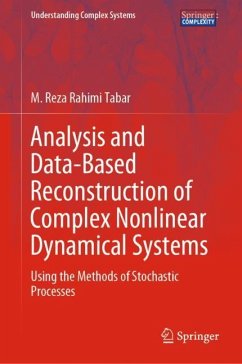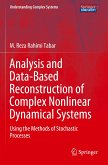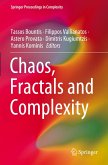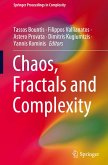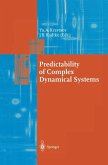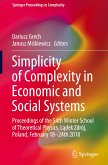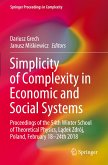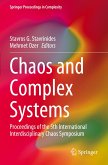This book focuses on a central question in the field of complex systems: Given a fluctuating (in time or space), uni- or multi-variant sequentially measured set of experimental data (even noisy data), how should one analyse non-parametrically the data, assess underlying trends, uncover characteristics of the fluctuations (including diffusion and jump contributions), and construct a stochastic evolution equation?
Here, the term "non-parametrically" exemplifies that all the functions and parameters of the constructed stochastic evolution equation can be determined directly from the measured data.
The book provides an overview of methods that have been developed for the analysis of fluctuating time series and of spatially disordered structures. Thanks to its feasibility and simplicity, it has been successfully applied to fluctuating time series and spatially disordered structures of complex systems studied in scientific fields such as physics, astrophysics, meteorology, earth science, engineering, finance, medicine and the neurosciences, and has led to a number of important results.
The book also includes the numerical and analytical approaches to the analyses of complex time series that are most common in the physical and natural sciences. Further, it is self-contained and readily accessible to students, scientists, and researchers who are familiar with traditional methods of mathematics, such as ordinary, and partial differential equations.
The codes for analysing continuous time series are available in an R package developed by the research group Turbulence, Wind energy and Stochastic (TWiSt) at the Carl von Ossietzky University of Oldenburg under the supervision of Prof. Dr. Joachim Peinke. This package makes it possible to extract the (stochastic) evolution equation underlying a set of data or measurements.
Here, the term "non-parametrically" exemplifies that all the functions and parameters of the constructed stochastic evolution equation can be determined directly from the measured data.
The book provides an overview of methods that have been developed for the analysis of fluctuating time series and of spatially disordered structures. Thanks to its feasibility and simplicity, it has been successfully applied to fluctuating time series and spatially disordered structures of complex systems studied in scientific fields such as physics, astrophysics, meteorology, earth science, engineering, finance, medicine and the neurosciences, and has led to a number of important results.
The book also includes the numerical and analytical approaches to the analyses of complex time series that are most common in the physical and natural sciences. Further, it is self-contained and readily accessible to students, scientists, and researchers who are familiar with traditional methods of mathematics, such as ordinary, and partial differential equations.
The codes for analysing continuous time series are available in an R package developed by the research group Turbulence, Wind energy and Stochastic (TWiSt) at the Carl von Ossietzky University of Oldenburg under the supervision of Prof. Dr. Joachim Peinke. This package makes it possible to extract the (stochastic) evolution equation underlying a set of data or measurements.

